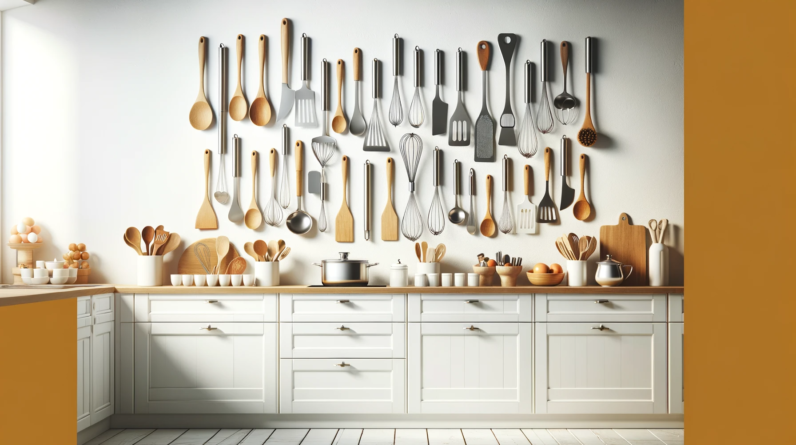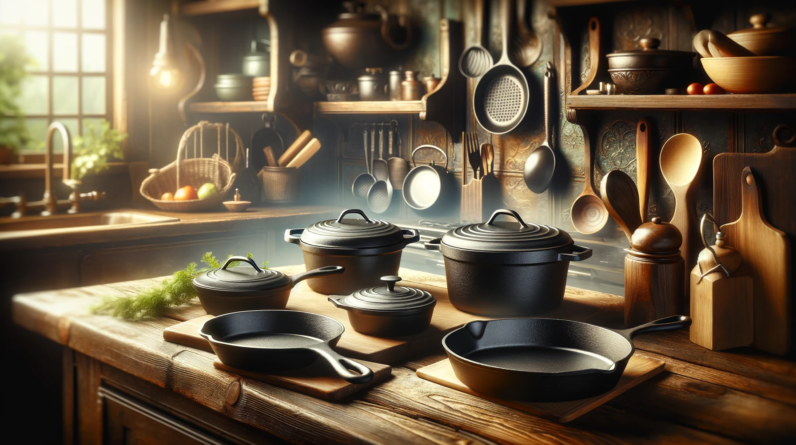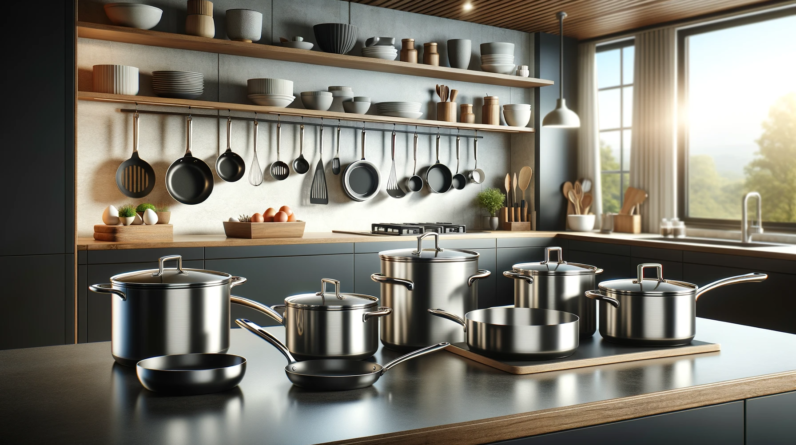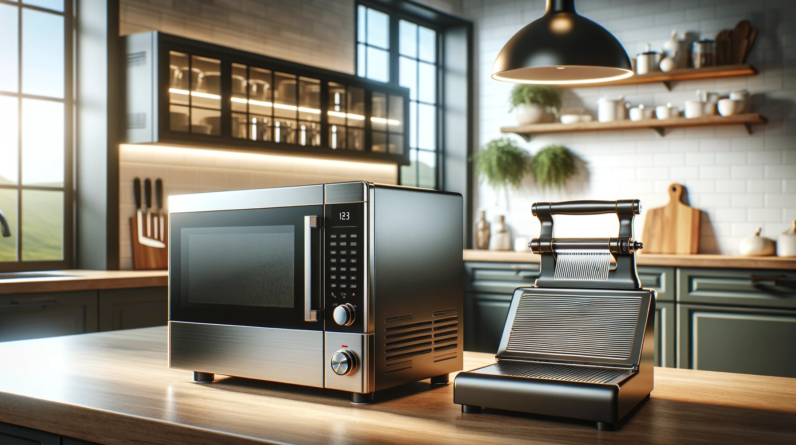
Disclaimer: This post may contain affiliate links. As an Amazon Associate, we earn from qualifying purchases.
When it comes to equipping your kitchen with the right tools, choosing the best kitchen utensils is crucial. But with so many options available, it can be overwhelming to know what to look for. From the perfect set of knives to the most efficient spatulas, this article will guide you through the essential factors to consider when buying kitchen utensils.
Whether you’re a seasoned chef or a cooking novice, understanding the qualities that make a utensil worth investing in will ensure that your culinary adventures are a breeze.
Durability
Material
When looking for kitchen utensils, durability is one of the most important factors to consider. You want utensils that are made from high-quality materials that can withstand the demands of daily use in the kitchen. Stainless steel is a popular choice for its strength and resistance to corrosion.
It is also easy to clean and can withstand high temperatures. Other durable materials commonly used for kitchen utensils include silicone, wood, and nylon.
Construction
 In addition to the quality of the materials used, the construction of the kitchen utensils is another important aspect to consider.
In addition to the quality of the materials used, the construction of the kitchen utensils is another important aspect to consider.
Look for utensils that are well-made and sturdy. Pay attention to the way the handle is attached to the utensil – it should be securely fastened to ensure it doesn’t come loose during use.
Utensils with seamless construction are also preferable, as they are less likely to trap food particles and are therefore easier to clean.
Functionality
Versatility
When selecting kitchen utensils, it is important to choose ones that can perform multiple tasks.
Versatile utensils can save space in your kitchen and make meal preparation more efficient. Look for utensils that can be used for various cooking techniques, such as stirring, flipping, and serving. For example, a spatula that can be used for both flipping pancakes and serving pasta can be a valuable addition to your kitchen.
Ergonomics
The ergonomics of kitchen utensils are crucial for your comfort and ease of use. Look for utensils with handles that are comfortable to hold and grip. Handles that are too thin or too heavy may cause discomfort or fatigue during prolonged use. Non-slip grips can be a great feature, providing stability and preventing accidents in the kitchen.
Size and Shape
Consider the size and shape of the utensils you are purchasing. They should be suitable for the size of your hands and the tasks you will be performing. Smaller utensils are ideal for more intricate tasks, while larger utensils can handle bigger portions of food.
Additionally, consider the shape of the utensils – they should be designed in a way that makes it easy to maneuver and use them without any hassle.
Handles and Grips
 The handles and grips of kitchen utensils play a significant role in their functionality. Look for utensils with handles that are long enough to keep your hands away from heat sources, minimizing the risk of burns.
The handles and grips of kitchen utensils play a significant role in their functionality. Look for utensils with handles that are long enough to keep your hands away from heat sources, minimizing the risk of burns.
Handles with a comfortable grip are also desirable, especially when dealing with heavier or larger utensils.
It is also worth considering utensils with heat-resistant handles, as they offer added safety and convenience.
Maintenance
Ease of Cleaning
No one wants to spend excessive time and effort cleaning kitchen utensils.
It is crucial to choose utensils that are easy to clean. Non-stick surfaces can be a great feature, preventing food from sticking and making cleanup a breeze.
Additionally, utensils that are dishwasher safe can save you time and energy, as they can be conveniently cleaned with the rest of your dishes.
Dishwasher Safe
If you prefer using a dishwasher for convenience, make sure to check if the kitchen utensils you are considering are dishwasher safe. While most utensils are dishwasher safe, some materials, such as wooden or certain types of plastic utensils, may require handwashing to maintain their durability.
Always check the manufacturer’s instructions for proper care and maintenance.
Safety
Heat Resistance
 Safety is a crucial consideration when choosing kitchen utensils, especially when dealing with heat sources. Look for utensils that are heat resistant to avoid any accidents or damage. Stainless steel utensils are known for their heat resistance and durability.
Safety is a crucial consideration when choosing kitchen utensils, especially when dealing with heat sources. Look for utensils that are heat resistant to avoid any accidents or damage. Stainless steel utensils are known for their heat resistance and durability.
Silicone utensils are also a popular choice as they can withstand high temperatures without warping or melting.
Make sure to check the temperature limit specified by the manufacturer to ensure the utensils can safely handle your cooking needs.
Non-Toxic Materials
Choosing kitchen utensils made from non-toxic materials is essential to ensure the safety of your food and health.
Utensils made from food-grade materials are free from harmful chemicals that can leach into your food. Materials such as stainless steel, silicone, and nylon are generally considered safe options. Avoid utensils made from materials containing BPA or other potentially harmful substances.
Quality
Brand Reputation
Brand reputation can be a helpful indicator of the quality and reliability of kitchen utensils. Established brands with a history of producing high-quality products are often a safe bet. They have likely invested in research and development to ensure their utensils meet rigorous standards.
While brand reputation alone doesn’t guarantee quality, it can offer peace of mind when making your purchase.
Customer Reviews
Reading customer reviews can provide valuable insights into the quality of kitchen utensils. Real-life experiences shared by other customers can help you gauge the durability, functionality, and overall satisfaction with a particular product.
Look for reviews from verified purchasers to ensure authenticity. Keep in mind that individual experiences may vary, so it’s important to consider a range of reviews before making your decision.
Warranty
A warranty can be an indication of the manufacturer’s confidence in the quality of their product. When purchasing kitchen utensils, consider if the manufacturer offers a warranty. A warranty can provide assurance that the utensils will be replaced or repaired if they prove to be defective or break within a certain period.
Always review the terms and conditions of the warranty to understand what it covers and any specific requirements.
Price
Budget
Setting a budget is an important step when buying kitchen utensils. Determine how much you are willing to spend and prioritize your needs accordingly. Keep in mind that while quality utensils may come at a higher cost initially, they often offer better durability and longevity, making them a worthwhile investment in the long run.
Value for Money
Consider the overall value for money when assessing the price of kitchen utensils. Look beyond the initial cost and evaluate the quality, functionality, and durability of the utensils. A higher-priced set may offer superior features and materials that justify the investment. Conversely, a lower-priced option may still provide good quality at a more budget-friendly price. Balance your budget constraints with the value and longevity you expect from your utensils.

Storage
Space-Saving Design
Optimizing storage space in your kitchen is essential, especially if you have limited cabinet or drawer space. Look for kitchen utensils with a space-saving design. Utensils that can be stacked, nested, or folded can help save valuable space. Consider utensil sets that come with a storage container or organizer, keeping your utensils neatly organized and easily accessible.
Hanging Options
If you have wall space or a utensil rack in your kitchen, consider utensils with hanging options. Utensils with built-in hanging loops or hooks can be conveniently hung on a rack or wall-mounted organizer. Hanging your utensils not only saves space but also adds a decorative element to your kitchen.
Appearance
Aesthetics
While functionality and durability are crucial, the appearance of kitchen utensils can also add to the overall aesthetics of your kitchen. Choose utensils that match your kitchen’s style and color scheme. Whether you prefer sleek and modern designs or rustic and vintage aesthetics, there are a variety of options available to suit your taste. Utensils with stylish and well-designed handles or accents can also add a touch of elegance to your cooking space.
Type of Utensils
Essential Utensils
Consider the essential utensils you need for your everyday cooking tasks. This may include a spatula, a whisk, a slotted spoon, a serving spoon, and tongs, among others. Make sure the utensils you choose fulfill your basic cooking needs and can handle various ingredients and cooking techniques. These essential utensils will be used most frequently, so prioritize their quality and functionality.
Specialized Utensils
 Specialized utensils cater to specific cooking needs and techniques. Depending on your cooking preferences, you may want to consider utensils such as a pasta server, a fish spatula, a garlic press, or a meat tenderizer. These specialized utensils can enhance your cooking experience and make certain tasks more efficient. Assess your cooking habits and determine which specialized utensils would be most beneficial to have in your kitchen.
Specialized utensils cater to specific cooking needs and techniques. Depending on your cooking preferences, you may want to consider utensils such as a pasta server, a fish spatula, a garlic press, or a meat tenderizer. These specialized utensils can enhance your cooking experience and make certain tasks more efficient. Assess your cooking habits and determine which specialized utensils would be most beneficial to have in your kitchen.
Additional Features
Non-Stick Coating
Utensils with a non-stick coating offer a convenient and hassle-free cooking experience.
The non-stick surface prevents food from sticking, making it easier to cook delicate items like eggs or pancakes.
It also simplifies the cleaning process as food residues can be easily wiped off. Keep in mind that non-stick coatings can wear off over time, so consider the longevity and maintenance requirements of these utensils.
Multipurpose Functions
Utensils with multipurpose functions can be a valuable addition to your kitchen. Look for utensils that can perform multiple tasks, saving you both space and money. For example, a whisk that can also serve as a strainer or a cutting board that doubles as a colander.
These versatile utensils can streamline your cooking process and enhance your culinary versatility.
So when it comes to buying kitchen utensils, consider the durability of the materials and the construction of the utensils. Look for utensils made from high-quality materials that can withstand daily use and are well-constructed to ensure longevity.
Functionality is also important, so choose utensils that are versatile in their use, ergonomic in their design, and suitable in size and shape. Consider the ease of maintenance, prioritizing utensils that are easy to clean and dishwasher safe. Safety should never be compromised, so opt for heat-resistant and non-toxic materials.
Quality can be assessed through brand reputation, customer reviews, and the availability of warranties. Set a budget and determine the value for money you expect from your utensils. Keep storage in mind by selecting utensils with space-saving designs or hanging options.
Aesthetics can also be considered, as utensils can contribute to the overall appearance of your kitchen. Consider the types of utensils you need, including essential and specialized ones. Lastly, look for additional features such as non-stick coatings and multipurpose functions to enhance your cooking experience.
By considering these factors, you can make an informed decision and find the perfect utensils. 





